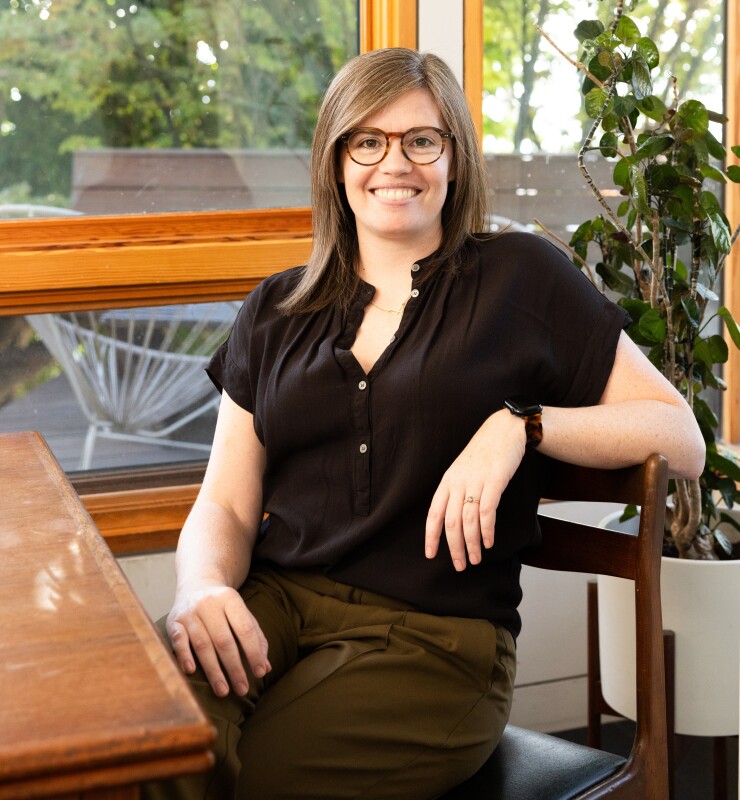This is the 11th installment in a Financial Planning series by Chief Correspondent Tobias Salinger on how to build a successful RIA. See
The widely held conviction that registered investment advisory firms must find and serve a niche base of clients may sometimes belie the difficulty of doing so.
Financial advisors and wealth management firms have struck
READ MORE:
Easier said than done
Problems arise for startup RIAs and advisory practices, though, if they seek a niche that is too generic or not sufficiently scalable as a business model, or if they try to cultivate it too soon, according to planners and industry marketing experts.
An advisor's niche often emerges out of the alchemy of opportunities, skills, passions and maybe a little bit of luck or coincidence. It doesn't come from, say, locating a list of employees of the largest company in a city and cold-calling them. Most advisors and experts suggest a much different approach.
"Advisors who try to do it preemptively usually aren't as successful as the ones who do it organically," said Robert Sofia, the CEO of
One method of identifying a successful niche stems from an advisor figuring out which of their clients are both profitable and enjoyable to work with, he noted, suggesting they analyze their first dozen or so customers to look for any unifying traits. "Start identifying those patterns and leaning into those niches," Sofia added.
Unless they're leaving a prior firm where they worked with a niche, early-career advisors may "do themselves a disservice" by sharpening their lenses right away, said Nisiar Smith, founder of

"I always tell folks, 'Your niche will find you.' I think a lot of advisors, when they're starting out with a firm, they're trying so hard to just home in on a group of people," Smith said. "It's kind of too early to declare a major."
Especially for those advisors with far fewer resources to deploy for reaching clients than the giant wealth management firms but much greater flexibility around the structure of their business, it could take several years to find their best niche, agreed Leighann Miko, founder of Los Angeles- and Portland, Oregon-based RIA firm
"I'm an advocate of not fully boxing yourself in from the get-go," she said. "The advantage of being a smaller independent firm is you retain as much control as possible."
The niche could begin with simply "finding out about one client and really getting inside their business," which then leads to referrals from the customers to prospective ones, said Jack Oujo, founder of Wall Township, New Jersey-based advisory practice
"The more you learn about it, the more you can learn about anyone in that particular industry," he said. "Their niche is right under their nose. They don't have to go out and look for it, it's right there already."
READ MORE:
The stats on potential clients
In general, RIAs operating in an industry with a
"There is no evidence that simply having a niche directly leads to greater productivity or the ability to attract higher-value clients," Kitces and co-authors Mark Tenenbaum, Dan Inveen and Tim Mulligan wrote in the annual "
"This remains true whether examining teams with any niche or specific types of niches, such as technical (highlighting unique skills or expertise), professional (targeting a specific profession or role), experiential (providing a distinct client experience), psychosocial (serving a particular demographic), affinity-based (focusing on shared communities or social circles) or value-based (catering to clients with aligned values)," they continued. "To the extent that a niche focuses on serving more affluent clients, it may position an advisor to attract those clients effectively. However, in such cases, the niche itself is not the driver of success but rather a pathway to reaching higher-value clients, who ultimately contribute to greater productivity."
READ MORE:
Case studies: Growing into a niche
The advisors who have embraced a niche effectively can offer a lot of examples for those who are interested in finding one.
Over decades in the profession, Oujo has broken into several niches. While tax planning affects everyone, the fact that he is both a certified public accountant and a certified financial planner remains a relatively novel concept, tying together two related
Working with one client of a particular type often brings a better understanding of the needs of that type of customer, as well as a possible referral to prospects with similar profiles, Oujo pointed out. That could look like discussing one firm's benefits plans or stock options with a small group of employees from that company. Oujo calls the clients he has the best relationships with the "advocates for our practice," and he strives for them to discuss his firm with friends "the way they would talk about their favorite restaurant," he said.
"When you provide people an overwhelming level of service, they're going to refer you to others," Oujo said.

It took Miko's firm about three or four years to develop a "very specific" focus on LGBTQ entertainment professionals rather than its initially broader group of young queer professionals, she noted.
"I started out by focusing on people who are like me," she said. "It further refined itself. I call them my queer creatives."
Smith's primary base of athletes began with a parent whose son was on his way to playing in the National Basketball Association asking him to be their advisor, he said. That relationship enabled him to bulk up the practical knowledge and network that is necessary to sustain an advisory practice catering to the
Smith is "not afraid to ask for referrals" with his NBA and Women's National Basketball Association clients, and he recently traveled to Indianapolis for the WNBA All-Star Game weekend to connect with customers and prospective ones, he noted.
"You have to go where your niche lives," Smith said. "If they live at events, if they live in Facebook groups, if they live at conferences, you've got to be willing to go where they are in order to further penetrate that group."





